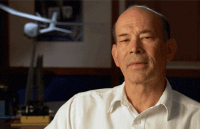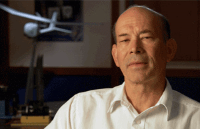My Book on Renewables, with Help from Wally Rippel


In my call with Wally just now, I was encouraged that he was so enthusiastic about the book, on the basis that he believes that public ignorance is what’s holding all of this back. There are currently an average of 385 parts per million of CO2 in our atmosphere, and the consensus in the scientific community that that this needs to come down at a maximum of 350 PPM to prevent global warming. But the oil companies and others who would profit at the expense of the destruction of our earth are pointing us into technologies that are clearly unworkable, most notably hydrogen — and most people don’t understand enough about science to see that is simply a hoax. The theoretical limit on the efficiency of hydrogen fuel cells is below 30%, compared with electric motors that are already in the high 80s. Yet Wallt points out that people are thoroughly confused on this issue; many even believe that hydrogen is a form of energy — rather than a carrier of energy — like a battery or the driveshaft of your car.
The thing I love about our talks is that I learn something – normally pertaining to both science and philosophy — from almost everything that comes out of Wally’s mouth. Here’s a great example, from my 10-minute phone conversation earlier today:
The breakthroughs of 19th century physics turned into useful tools very quickly. E.g., when Faraday and Maxwell nailed electricity and magnetism, we had electric motors and generators within a few years. With modern physics, by contrast, it takes many decades for breakthroughs for such ideas to affect our lives — if they make any difference at all. For instance, look at the work going into quantum entanglement, the concept that certain pairs of particles, no matter how distant from one another, seem to know each other’s state instantaneously. Obviously, like so many other things about quantum physics, this is very weird and counter-intuitive, if only that it violates the theory of special relatively that would have us believe that nothing (particles, information, etc.) can travel faster than the speed of light. In any case, the world of advanced physics is working hard to make use of this phenomenon, certainly in communications—and perhaps one day in energy — but at best, it will be many decades before any of this happens.
That was worth 10 minutes of my time any day of the week.

[…] at which I interviewed Dr. Tom Mackin, chairman of the mechanical engineering department for my upcoming book. The focus here, of course, is nurturing innovation in the next generation — and I can tell […]